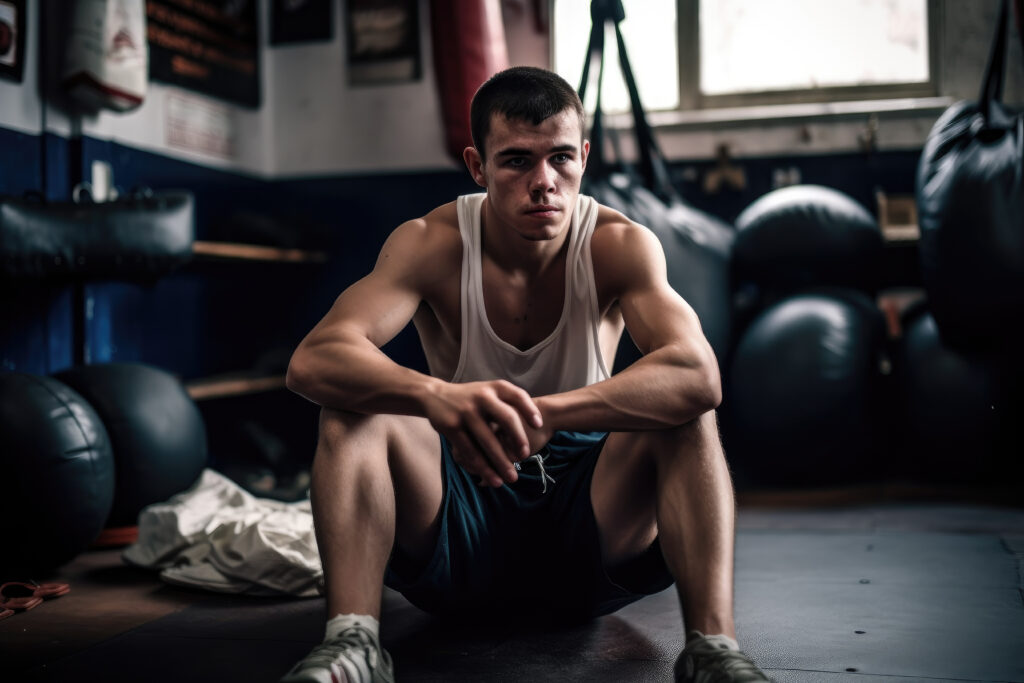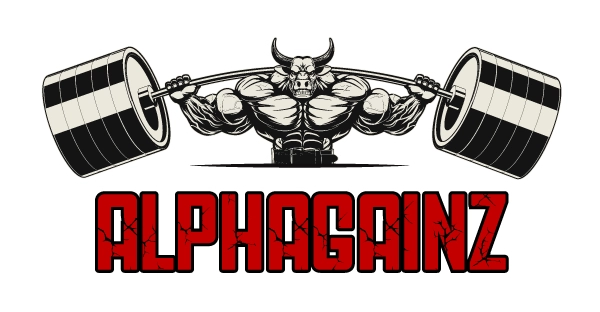My son got recruited to play football at a D1 school last year. Kid worked his butt off all through high school, made varsity as a sophomore, had coaches from colleges showing up to his games junior year. We thought he was ready.
First week of college training, he calls me damn near in tears. “Dad, I can’t keep up. These guys are so much stronger and faster than me. I feel like I didn’t prepare at all.”
That hurt to hear because we thought we’d done everything right. He’d been lifting at his high school gym, playing year-round, doing all the stuff his coaches told him to do. But it wasn’t enough. The gap between high school athletics and D1 athletic performance is way bigger than we realized.
If I could go back and do his last two years of high school over, here’s what I’d do different. If your kid’s got college sports aspirations, learn from our mistakes.

Prepare Your High School Athlete For College With Us
High School Weight Training Isn’t Real Strength Training
My son’s high school had a weight room. They lifted three times a week during football season. Coach would walk around making sure nobody was screwing around. That was it.
No real programming. No progression plan. Just “today’s bench day” or “today’s leg day” with whatever weight felt heavy that day. Sometimes they’d go heavy, sometimes light, no rhyme or reason to it.
Compare that to what he’s doing now at school: structured powerlifting-style programs with calculated percentages, deload weeks, periodization, mobility work, recovery protocols. Everything’s tracked and planned months in advance by actual strength coaches who went to school for this.
The difference is insane. He’s gained 25 pounds of muscle in one year and gotten way stronger. He could’ve been doing this in high school if we’d known better.
If I was doing it again, I’d find a real sports training facility like AlphaGains—not just a regular gym, but a place that specializes in athletic performance and actually knows how to program for high school athletes. There’s places like this in Colorado Springs CO near the Olympic Training Center that do it right. We’ve got nothing like that where we live, but there’s got to be something.
Or hire a private strength coach who knows what they’re doing. Yes, it costs money. So does sending your kid to college unprepared and watching them struggle or get hurt.
The Speed And Agility Work Nobody Does
High school football practice included conditioning. Lots of sprints, lots of running. My son was in shape. Good cardio.
Completely different from the speed work he does now. Proper sprint mechanics, acceleration drills, change of direction training, plyometrics, agility ladder stuff done correctly with coaching on technique.
We did some of this stuff in high school but nobody was really teaching him HOW to do it right. Just “run through the ladder fast” without anyone explaining foot placement or hip mechanics or any of the technical stuff that actually matters.
Now he’s faster. Not because he got in better shape—he was already in good shape. He’s faster because someone finally taught him how to actually run efficiently.
This kind of sports training needs to start in high school, not freshman year of college when you’re already behind everyone who did it right.
You Need Sport-Specific Skill Work Year Round
My son played football in fall, wrestled in winter to “stay in shape,” did nothing in spring and summer except some 7-on-7 leagues.
The kids who are dominating at his level now? They were doing position-specific training year-round. Quarterbacks working with QB coaches. Linemen doing technique work. Running backs doing footwork drills. All year. Every year.
We thought wrestling would help because it’s physical and builds toughness. And yeah, it helped with that. But it wasn’t football-specific training. Those months could’ve been spent getting better at his actual position.
I’m not saying don’t play multiple sports—there’s arguments for that too. But at some point, if you’re serious about playing in college, you need to commit to sport-specific development. Not just playing games, but actual technical skill development.
This is expensive and time-consuming. That’s the reality. The kids who make it to D1 and excel there usually had parents who invested serious money and time into their development. Sucks, but it’s true.
The Nutrition Thing Everyone Ignores
My son ate like a regular teenage boy. Pizza, fast food, whatever. He was active so he stayed lean. We figured he was fine.
College athletes are following nutrition plans. Tracking protein. Timing their meals around training. Taking it seriously because their athletic performance depends on it.
You can’t build muscle or recover properly if you’re eating garbage. Doesn’t matter how hard you train at AlphaGains if you’re not fueling right.
We should’ve hired a sports nutritionist when he was 15 or 16. Get him educated about what he needs to eat, how much, when. Build those habits before college when he’s on his own making food choices.
Now he’s learning all this at 18 while also trying to keep up with guys who’ve been doing it right for years. Would’ve been easier to learn it earlier.
Recovery Is Training Too
High school kids train hard and then go do more training. More is always better, right?
Wrong. His college strength coach talks about recovery like it’s as important as the workouts. Sleep schedule, stretching, foam rolling, ice baths, massage, active recovery days. It’s all programmed.
My son was getting maybe 6 hours of sleep a night in high school. Staying up late on his phone, waking up early for school. Never stretched unless coach made them. No recovery work at all.
His athletic performance has improved in college partly because the training is better, but also because the recovery is programmed properly. He’s sleeping 8-9 hours. Doing mobility work daily. Taking recovery seriously.
Could’ve started that in high school. Would’ve probably prevented some of the minor injuries he had from overtraining without proper recovery.
The Mental Side Nobody Prepares You For
This is the one that really caught us off guard. My son was confident in high school. Starter on varsity, one of the better players. Felt good about himself.
Gets to college and suddenly he’s not special anymore. Everyone there was a starter on varsity. Everyone was one of the better players at their school. Half these guys are bigger, stronger, and faster than him.
The mental adjustment of going from being one of the best to being average or below average—nobody prepared him for that. We didn’t even think about it.
Sports training should include mental training. Sports psychology. Building confidence that isn’t dependent on being the best. Learning how to handle adversity and stay motivated when you’re not the star anymore.
I wish we’d found him someone to work with on that before college. Would’ve made that first semester a lot easier.
What Actually Matters For Recruitment
We spent so much time on the wrong stuff. Going to camps and showcases, making highlight videos, reaching out to coaches. That matters, but it’s not enough.
Coaches are recruiting kids who can contribute immediately. That means kids who show up physically and mentally ready to compete at that level. Not kids who have potential but need a year or two to develop.
The measurables matter. How fast do you run? How much do you lift? How high do you jump? These are objective numbers scouts look at. My son’s numbers were okay for high school. Not great for D1.
If we’d spent his sophomore and junior years working with real powerlifting and speed coaches at a proper sports training facility instead of just doing whatever his high school coaches had them do, his measurables would’ve been way better. He probably could’ve gotten recruited to better programs.
The Financial Reality
All of this costs money. Real money. We spent maybe $2,000 total on his athletic development during high school. Travel for games and tournaments mostly.
The families of the kids who are thriving at his level? They spent tens of thousands. Private coaching, sports training facilities, nutrition consultants, sports psychologists, travel teams, showcases.
Is it fair? No. Does it suck that playing college sports basically requires being upper-middle class or wealthy? Yeah.
But that’s reality. If your kid wants to compete at the D1 level and you can afford to invest in proper athletic performance training, do it. If you can’t afford it, at least know what the gap is so you can make informed decisions.
What I’d Tell My Past Self
Find a real sports training facility like AlphaGains that specializes in athletic performance for your son’s sport. Not a regular gym. Somewhere with coaches who understand powerlifting, speed development, sport-specific training, recovery, all of it. Even if you have to drive to Colorado Springs CO or wherever the closest good facility is, it’s worth it.
Start this no later than sophomore year of high school. Earlier if you know your kid’s serious about college sports.
Get nutrition and recovery dialed in. These are as important as the training itself.
Find someone who can work with him on the mental side. Sports psychology isn’t just for pros.
Be realistic about the level of investment required. It’s not a level playing field. The kids who show up to college ready usually had every advantage.
My son’s doing okay now. Caught up a lot over his freshman year. Probably won’t be a starter until junior year, but he’ll get there. Would’ve been easier if we’d prepared him better.
If you’ve got a high school athlete with college aspirations, don’t make the mistakes we made. The competition is fierce and starts way earlier than you think.





